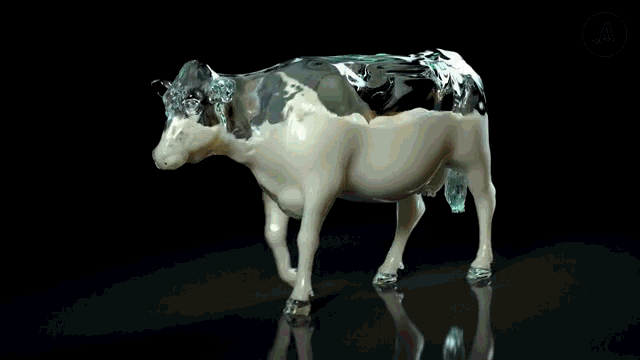[FACT OR FAKE #91] Do Kids Really Need Milk?
How important is milk for kids? Does consuming milk have any added benefits? SAYS' FACT OR FAKE columnist Sadho looks at what health writers and latest research say about milk to find out whether or not kids really need to drink milk.
Drinking milk can be considered as natural as water. Since early childhood, we are encouraged not only by our parents but even doctors and teachers to drink at least a glass of milk every day.
We have all literally grown up hearing milk slogans like, it's good for our body, it's a natural thing to drink, it builds strong bones and makes us grow faster, etc. But do kids really need to drink milk?
FAKE: No, kids don't really need milk!
"Do kids really need milk? No, of course they don't," said Amy Lanou, a professor of nutrition at the University of North Carolina at Asheville. Most people in the world do not drink milk after they are weaned from breast milk, and yet still get adequate nutrition, she added.
Although milk is a good source of protein, calcium and vitamin D, other food sources also provide these nutrients. What's more, there's no evidence that drinking milk reduces bone fractures, and drinking too much can lead to anemia and may contribute to obesity.
Kids, in order to build strong bones and healthy bodies, need exercise, sunshine and a diet rich in fruits and vegetables that helps them maintain a healthy body weight, says nutritionist Amy Joy Lanou, Ph.D., adding that there's no evidence to support the notion that milk is a preferred source of calcium.
There are definitely nutritional benefits to milk. But milk isn't the only way to get them, claims Dr. Claire McCarthy in her column
It's a great source of calcium, vitamin D (assuming it's fortified--vitamin D isn't naturally in milk) and protein. These are all nutrients that children need. And for many children who are picky about what they eat, drinking milk is a good way to get those nutrients.
But milk isn't the only way to get them. There are cultures all around the world that don't have dairy in their diets--and according to an interesting commentary in JAMA written by my colleague Dr. David Ludwig along with Dr. Walter Willett from the Harvard School of Public Health, bone fracture rates tend to be lower in countries without dairy in their diets, and drinking milk doesn't seem to protect against fractures in adults.
Did you know 75% of the world's population has lactose intolerance or cannot comfortably digest lactose, a sugar found in milk. Also, drinking too much milk can lead to anemia.
The calorie-laden beverage could also promote obesity
A December 2014 study in the Archives of Disease in Childhood found that preschoolers who drink three or more servings of milk a day are likelier to be taller, but also more obese and overweight. Whole, or full-fat, milk has high levels of saturated fat, which has been tied to health problems. And some studies suggest low-fat and skim milk may not be an answer, because people feel less full after drinking it.
What about flavoured milk? Well, it's even more dubious.
"An 8-ounce glass of low-fat chocolate milk has the same number of calories from sugar as an 8-ounce glass of Coke or Pepsi," Lanou said. Added sugar has been tied to a host of health problems, from obesity to diabetes to heart disease.
In the end, as LiveScience notes, milk isn't completely useless
"..milk may not be a superfood, but it does provide valuable nutrients that can be hard to get into kids in other ways", said Dr. Jonathon Maguire, a pediatrician at St. Michael's Hospital in Toronto.
Maguire has found that children seem to have good iron stores and vitamin D levels at around two glasses a day, which is the current recommendation of the American Academy of Pediatrics.
But if a kid simply hates the taste or has trouble digesting milk, parents don't have to push it. Instead, they can serve other foods to make sure their kids get the proper nutrition, Maguire said.





